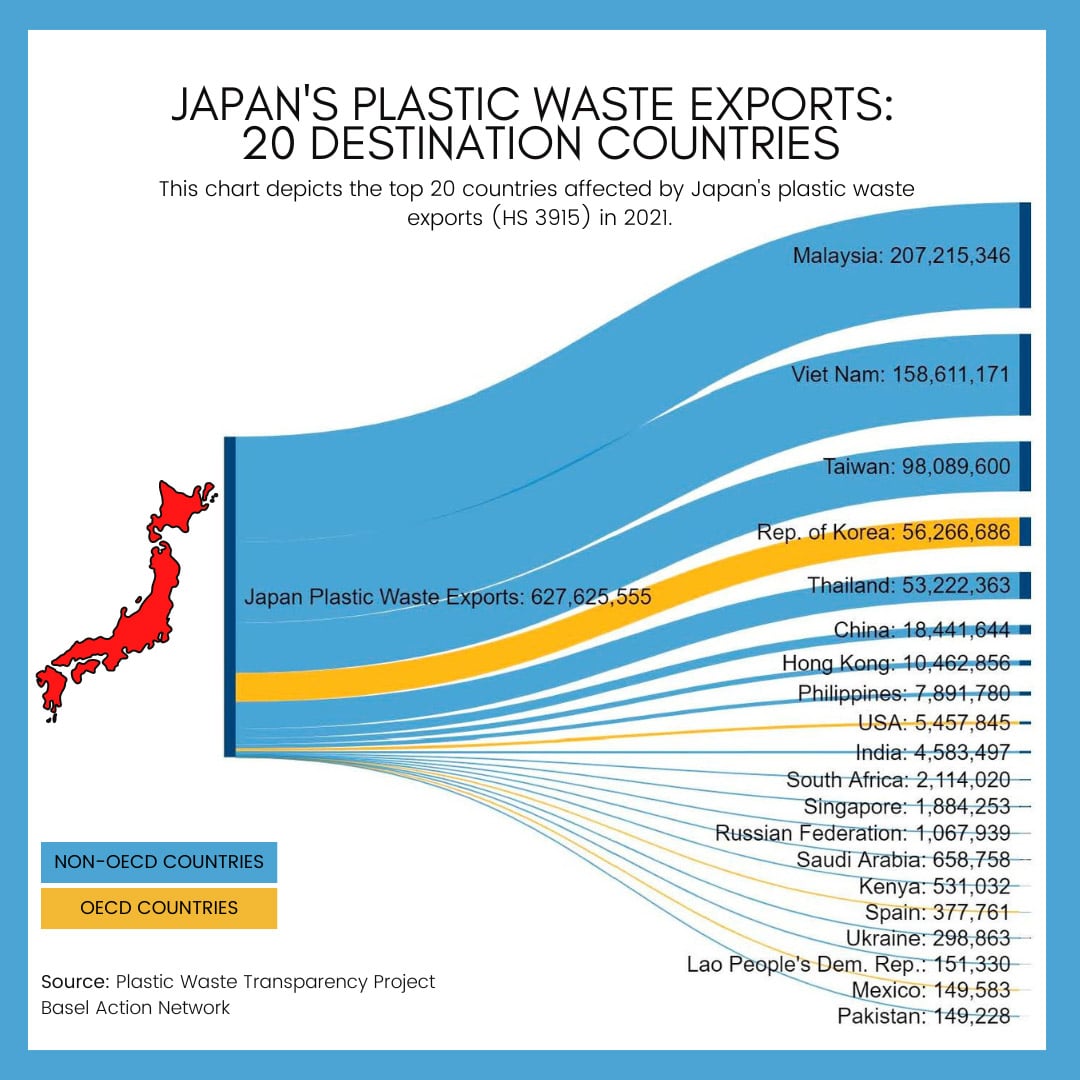Globally, the enforcement of the Basel Convention Plastic Waste Amendments has been unclear, as members of Break Free From Plastic have highlighted in a panel presentation at the last Basel Convention meeting. Similar questions surround Japan’s plastic waste exports, including whether the country has transposed the Basel Convention rules into local laws, and how it differentiates Basel categories of plastic waste – Y48, A3210, B3011 – versus the World Customs Organization's Harmonised System codes for plastic scrap – HS Code 3915.
The disturbing plastic waste export data for Japan and lack of transparency prompted Greenpeace Japan to send a questionnaire to their government, requesting important information about Japanese waste exports and data collection practices (read more about it in our Waste Trade Bites, March 2022).
They also released a press statement urging the Japanese government to be more transparent about the type and quantity of exports, to adopt essential measures to curb plastic usage by introducing a wide range of reuse policies in Japan with clear targets and contents, and to move proactively towards the enactment of a global plastics treaty.*
“To date, Japan’s Ministry of Environment has not disclosed any new information regarding our questionnaire, despite our attempts to reach them both directly and indirectly through a Diet member. They insist that all the information that can be disclosed, is already public. The government must raise its transparency and drastically step up its action against plastic pollution promptly,” urged Hiroaki Odachi, the Plastic Campaign Project Lead at Greenpeace Japan.
As a signatory of the Plastic Waste Amendments, it is imperative that the Japanese government stops plastic waste exports to countries without sufficient waste management infrastructures, where it has resulted in severe environmental, social and health problems. The production and export of plastics also leads to other impacts like marine pollution, biodiversity loss, and climate change. As one of Asia’s richest nations, Japan could take the lead in defining and adopting better solutions for plastic waste.

Interestingly, Japan ranks high in the plastic management index - a benchmark that measures how 25 countries are coping with plastics from cradle to grave, as per three criteria: governance, existing systemic capacity, and stakeholder engagement. In the past decade, Japan has filed for numerous patents for plastic recycling technologies, accounting for 18% of the global share in this category. (Source: European Patent Office). The country seems committed to finding solutions and moving towards a circular plastic economy, yet it needs to do so much more.
Japan needs to prioritise upstream solutions and drastically reduce plastic production and consumption. It is especially important to reduce plastic packaging at source by transitioning to a non-throwaway society that is reuse-based. Examples like Kamikatsu - a poster child for zero waste solutions - also hold hope for Japan.
In 2022, the Japan Special Edition of the Plastic Atlas, co-authored by Break Free from Plastic and the Institute for Global Environmental Strategies (IGES), drew attention to the problems caused by Japan’s waste in importing countries, including negative health impacts (especially on vulnerable grassroot communities), polluted rivers, widening gender inequality, and the plight of wastepickers. It also provided updated waste management trends, potential solutions - which, if adopted, will enable Japan to change her course towards a less plastic-intensive and truly sustainable society.
*Please find the translated versions (in English) of Greenpeace Japan’s questionnaire and press statement here, if you would like to take similar action in your country and call for more transparency over plastic waste exports.



